Effective delegation is the cornerstone of scaling a business, team, or personal workload. It’s about assigning responsibility with clear context so work gets done accurately and on time. This guide reviews the top 12 delegation tools, highlighting features, pricing, and ideal use cases to help you choose the right platform.
July 21, 2025 (7mo ago) — last updated December 14, 2025 (2mo ago)
Top 12 Delegation Software Tools
Compare the top 12 delegation software tools—features, pricing, and use cases—to pick the right platform for your team.
← Back to blog
Top 12 Delegation Software Tools
Summary: Compare the top 12 delegation software tools—features, pricing, and use cases to help you pick the right platform for your team.
Introduction
Effective delegation is the cornerstone of scaling a business, team, or personal workload. It’s not just about offloading tasks; it’s about assigning responsibility with clear context so work gets done accurately and on time. Poor delegation leads to miscommunication, missed deadlines, and repeated follow-ups — problems modern delegation software is built to solve1.
This guide cuts through the noise with practical analysis of the top tools available. For each option you’ll find core features, ideal use cases, pros and cons, and transparent pricing. Where helpful, I link to demos and related guides so you can evaluate tools quickly and run real trials with your team.
Whether you’re a project manager, executive, or freelancer, the goal is the same: clarity and accountability. These platforms help transform delegation from a stressor into a productivity multiplier. As hybrid and remote work become standard, choosing tools that integrate with your workflows matters more than ever2.
1. Fluidwave — AI prioritization + pay-per-task assistants
Fluidwave combines AI-driven task management with a human-powered assistant network. It’s built for professionals who want prioritized workflows and the option to outsource routine work on a pay-per-completed-task basis.

Key features and use cases:
- AI auto-prioritization that highlights high-impact tasks
- Multiple views: table, list, Kanban, calendar
- Pay-per-task virtual assistant marketplace (ideal for entrepreneurs and busy execs)
- Real-time collaboration across shared workspaces
Pricing and access:
- Free Forever plan with core features and multiple workspaces
- Optional one-time premium upgrade to remove reminder pop-ups (no recurring fee)
Pros:
- AI helps you focus on top priorities
- Flexible task views for diverse workflows
- Cost-effective delegation via pay-per-task assistants
Cons:
- Some assistant features roll out gradually
- One-time upgrade model may slow major feature cadence
Learn more: https://fluidwave.com
2. ClickUp — Highly customizable all-in-one platform
ClickUp aims to replace multiple apps with one highly configurable platform. It’s strong for teams that need granular delegation across tasks, subtasks, checklists, and dependencies.
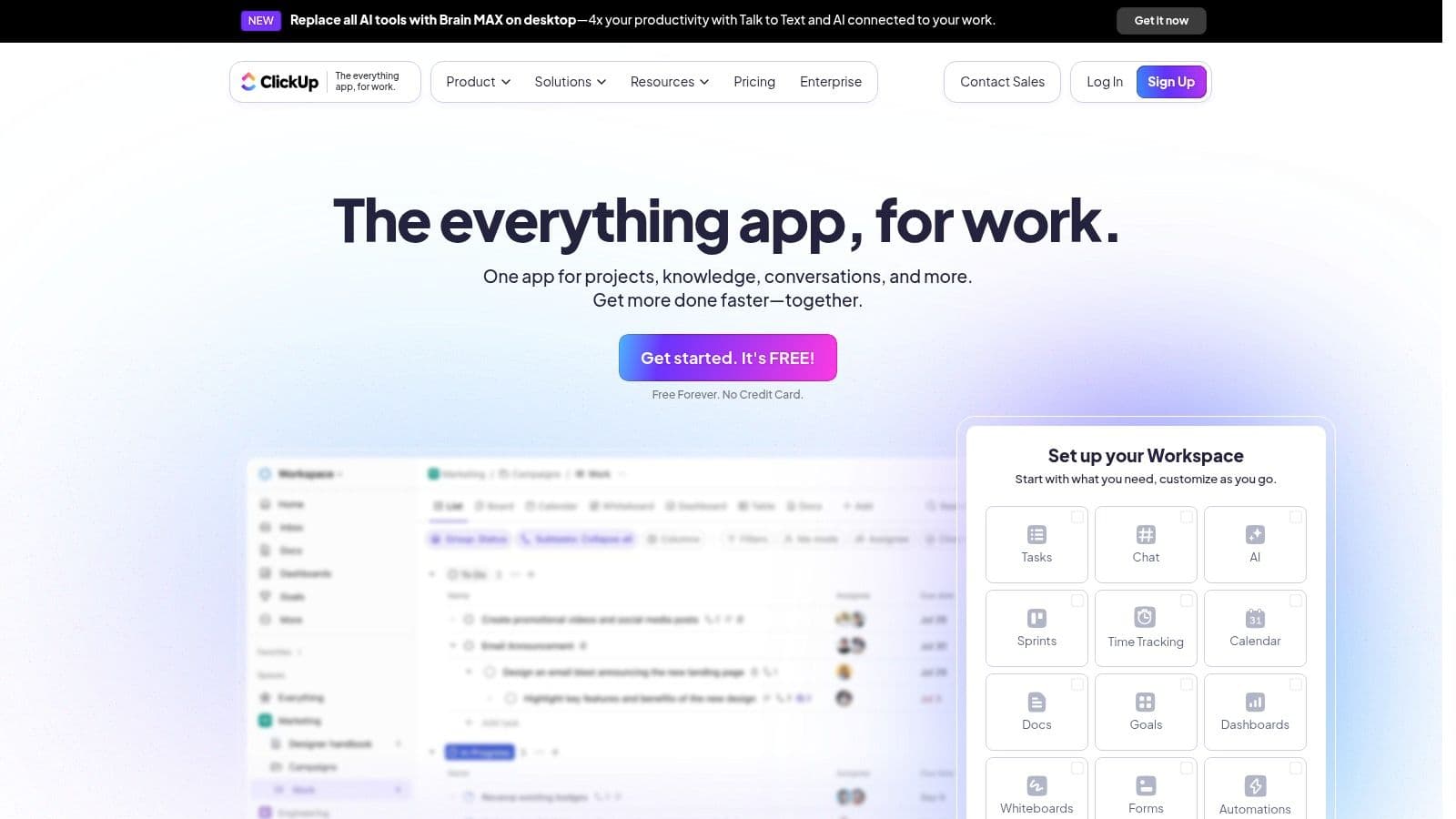
Core features:
- Custom views: List, Board, Calendar, Gantt
- Detailed task assignments, threaded comments, @mentions
- Automation rules to reduce repetitive work
- Native time tracking for resource planning
Pricing:
- Free Forever plan
- Unlimited: from $7/member/month
- Business: from $12/member/month
Best for: teams needing deep customization and automation.
Website: https://clickup.com
3. Asana — Clear workflows and visual timelines
Asana focuses on clarity and accountability. Create projects, assign tasks and subtasks, set dependencies, and use Timeline to spot bottlenecks before they become issues.
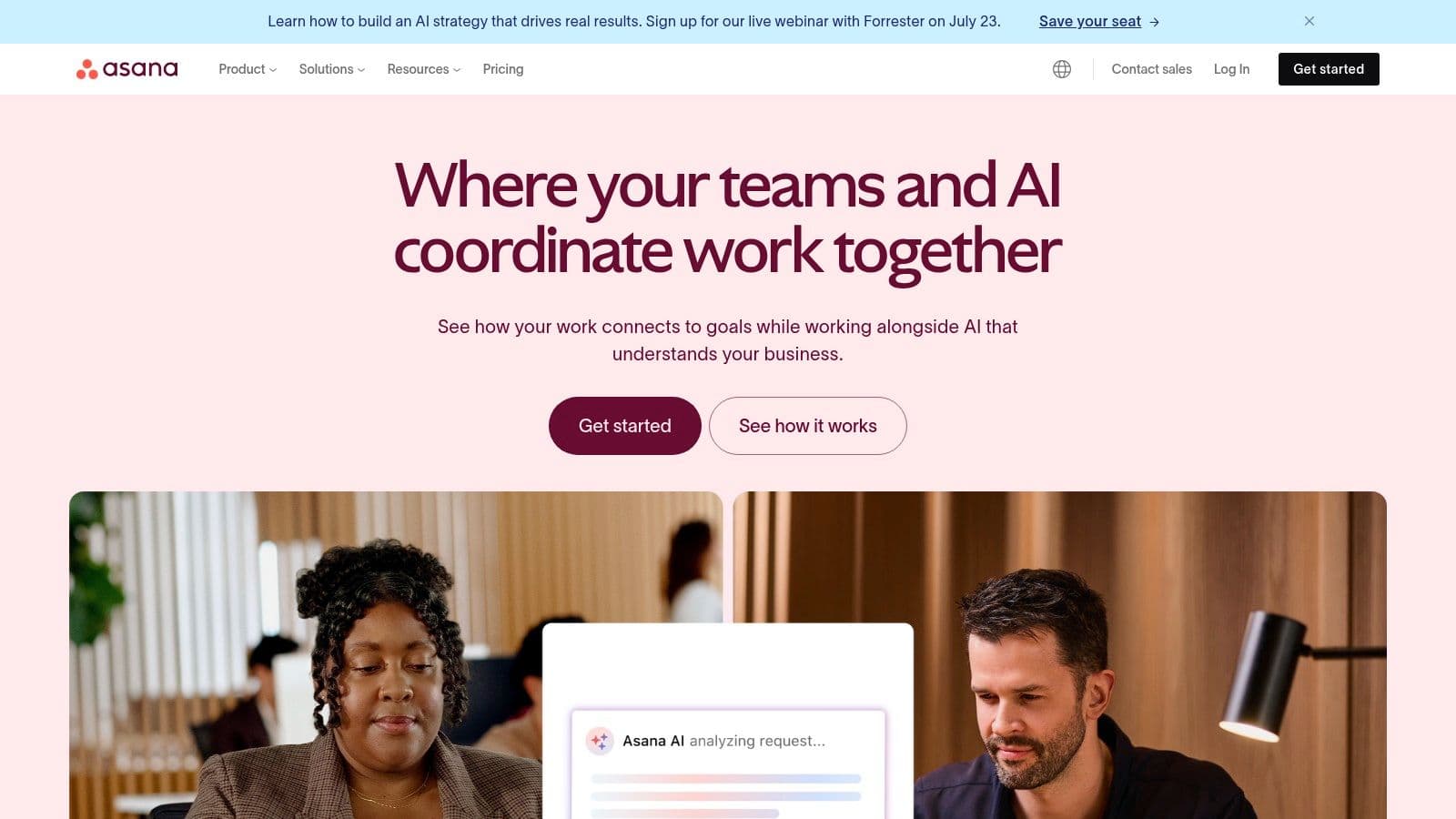
Core features:
- Multiple project views: List, Board, Timeline, Calendar
- Rules and automation to reduce manual follow-ups
- Workload management to prevent over-allocation
Pricing:
- Basic: free
- Premium: from $10.99/user/month (billed annually)
- Business: from $24.99/user/month (billed annually)
Best for: teams that want a user-friendly, visually organized platform.
Website: https://asana.com
4. Trello — Simple, visual Kanban boards
Trello’s drag-and-drop Kanban boards make delegation intuitive. Create cards, assign members, add due dates and attachments, and move work through stages.
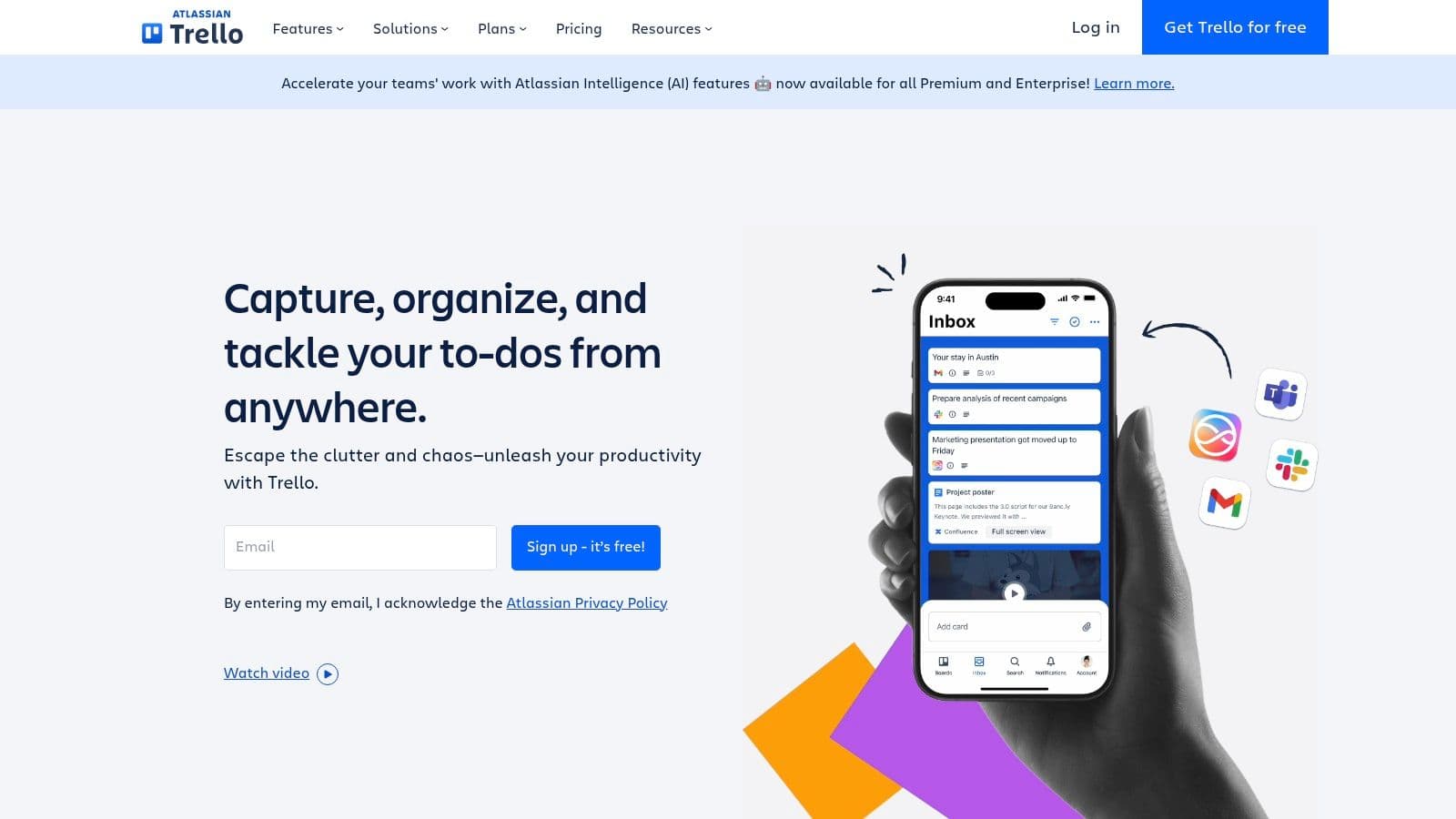
Core features:
- Boards, lists, and cards with checklists and attachments
- Butler automation for routine actions
- Power-Ups to integrate with Slack, Google Drive, Jira, and more
Pricing:
- Free plan with unlimited cards and up to 10 boards per workspace
- Standard: from $5/user/month
- Premium: from $10/user/month
Best for: teams and individuals who prefer a highly visual, easy-to-learn tool.
Website: https://trello.com
5. Basecamp — Simple, centralized project hub
Basecamp centralizes projects, to-dos, message boards, and schedules with a simplified interface that reduces noise and encourages straightforward delegation.
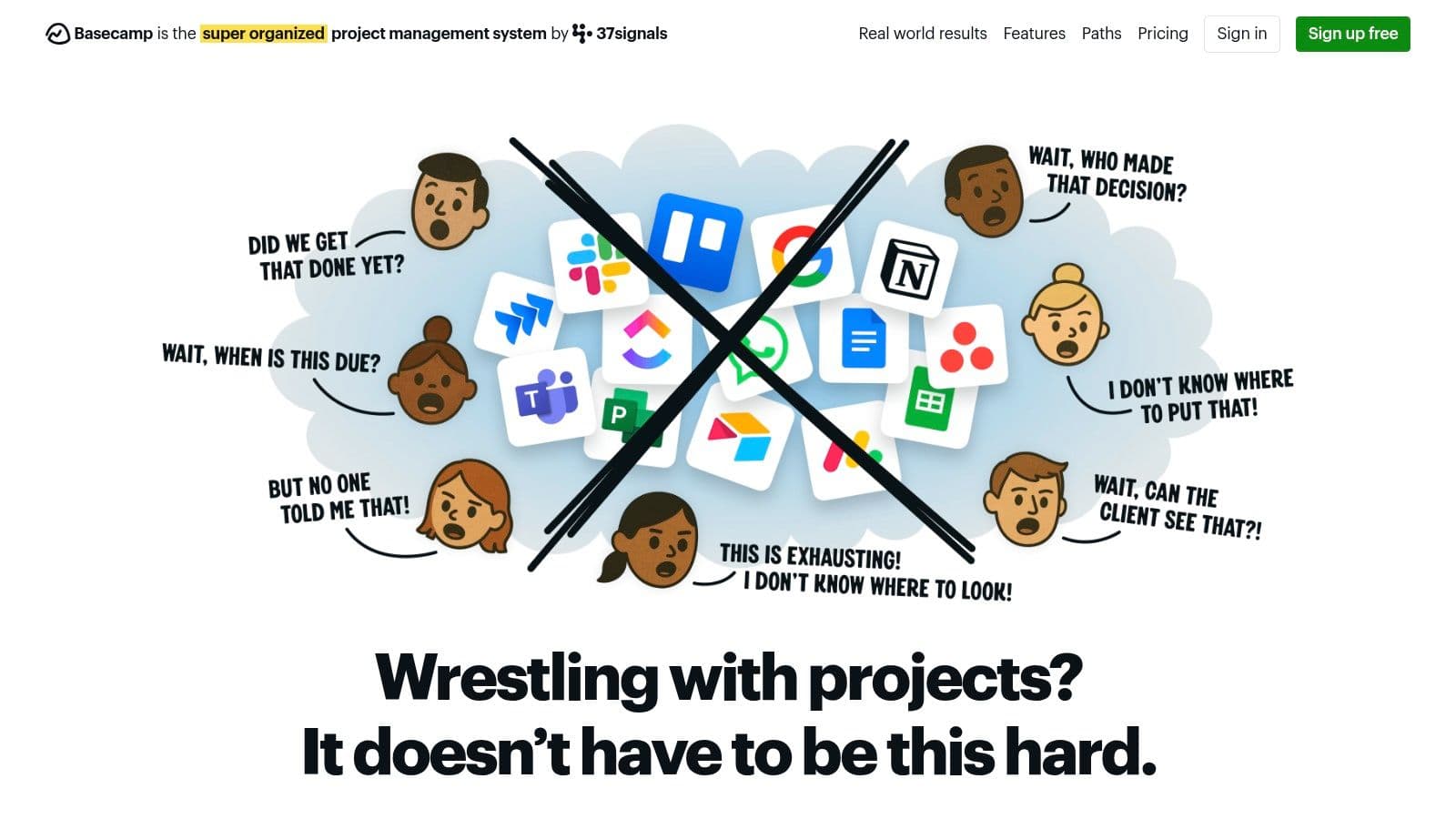
Core features:
- To-do lists with assignments and due dates
- Message Boards for centralized communication
- Shared Schedules and Automatic Check-ins
Pricing:
- Pro Unlimited: $299/month (flat rate for unlimited users)
- 30-day free trial available
Best for: teams that want a simple, flat-priced solution without per-user complexity.
Website: https://basecamp.com
6. Todoist — Fast, cross-platform task delegation
Todoist emphasizes speed and simplicity. Natural-language due dates and clean mobile apps make it great for quick delegation and follow-up.
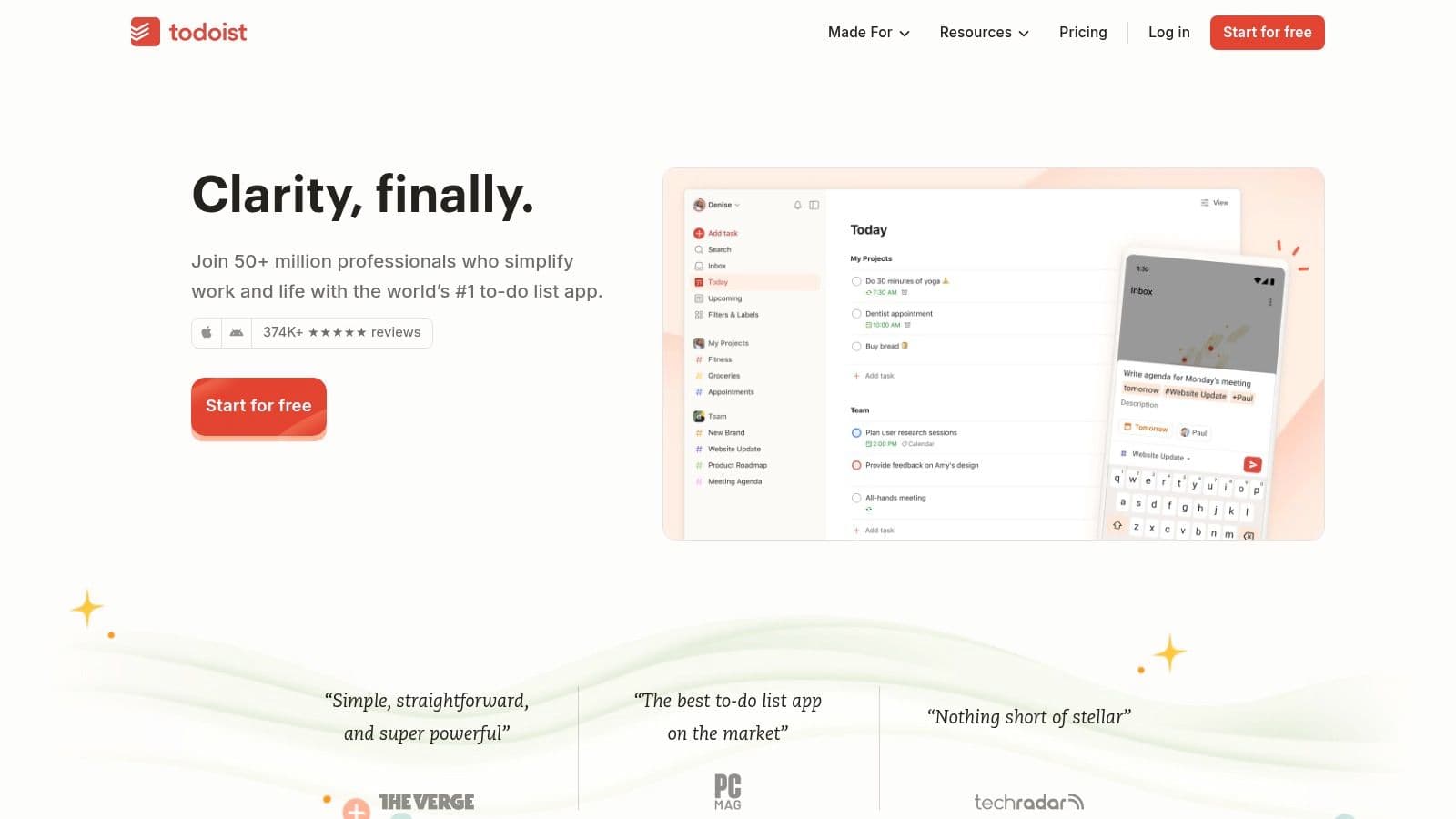
Core features:
- Shared projects and task assignments
- Priority levels and labels for filtering
- Sub-tasks and reminders
Pricing:
- Free plan for individuals
- Pro: from $4/month (billed annually)
- Business: from $6/member/month (billed annually)
Best for: individuals and small teams that need a fast, reliable task tool.
Website: https://todoist.com
7. Notion — Build-your-own delegation workspace
Notion blends notes, docs, and databases. It’s ideal for teams that want context-rich delegated tasks alongside documentation.
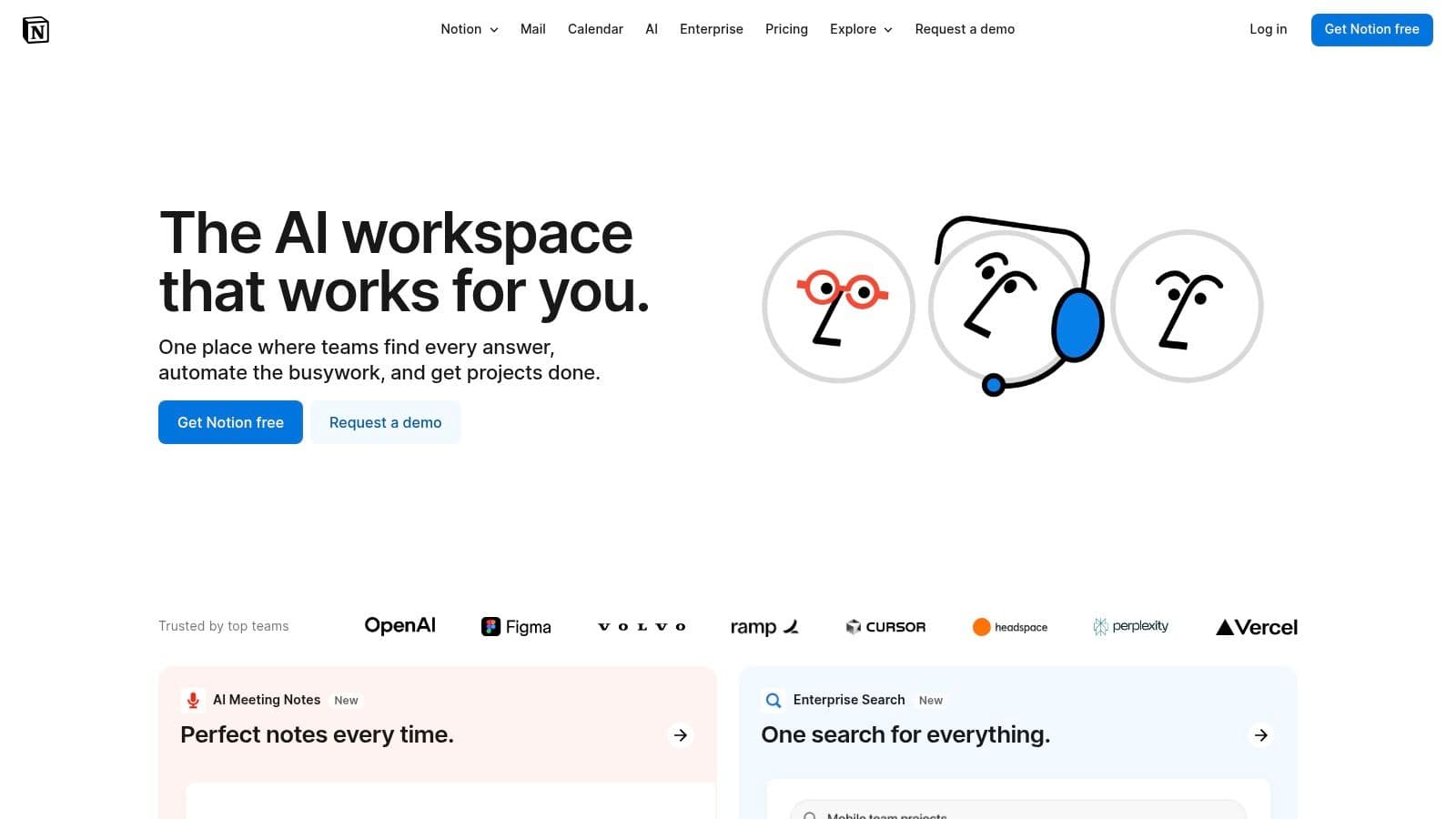
Core features:
- Custom databases with multiple views
- Each task can be a full Notion page with embedded briefings
- Templates and community-built setups for rapid adoption
Pricing:
- Free plan available
- Plus: from $8/user/month (billed annually)
- Business: from $15/user/month (billed annually)
Best for: teams that value documentation and want a highly customizable workspace.
Website: https://www.notion.so
8. ManageEngine ADManager Plus — Delegation for Active Directory
ManageEngine ADManager Plus lets IT teams delegate AD tasks securely by creating granular roles for technicians to perform specific actions without full admin rights.
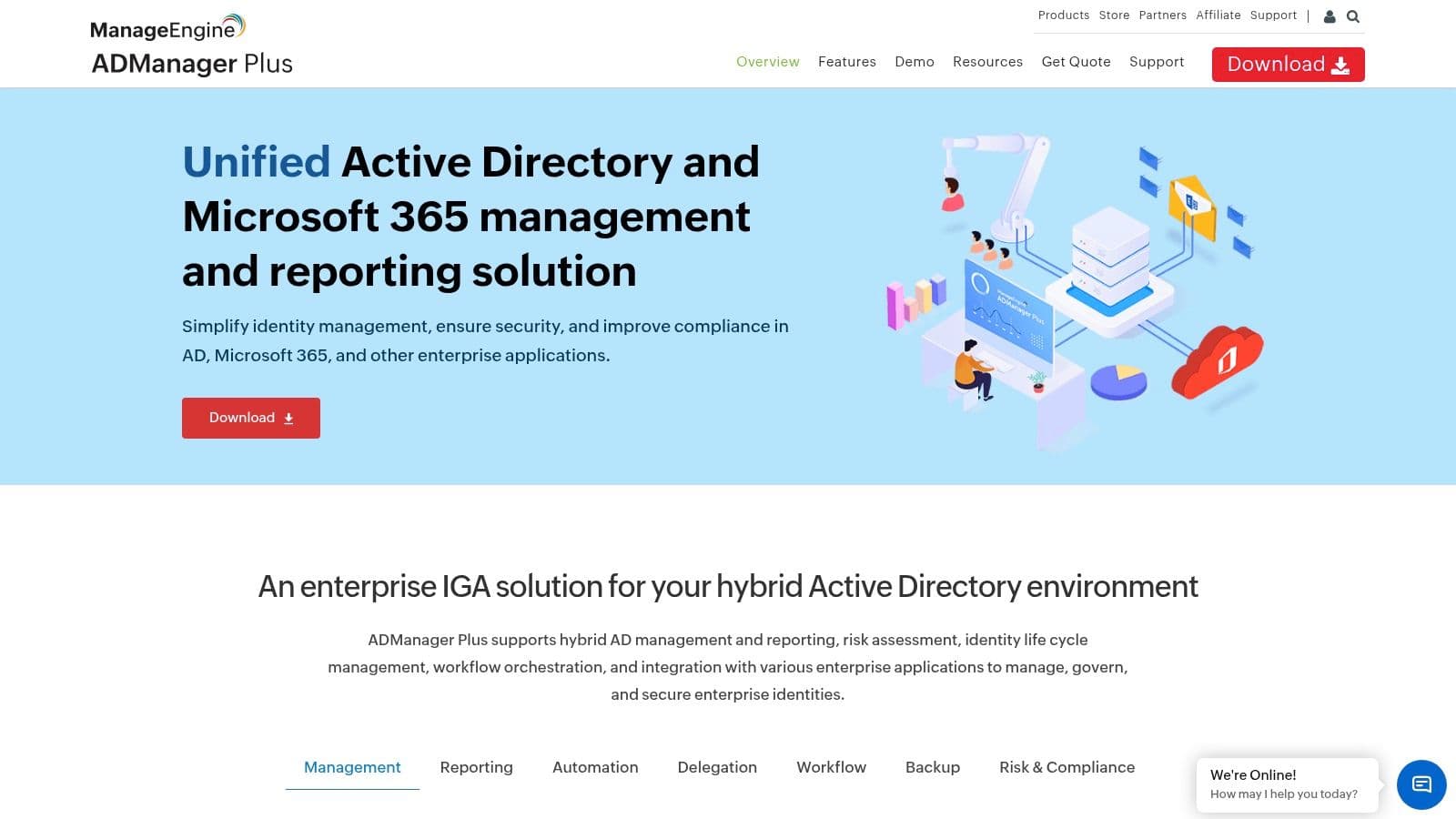
Core features:
- Role-based delegation for AD tasks
- Bulk user management via CSV
- Extensive reporting and audit trails
- Workflow automation with approvals
Pricing:
- Free edition for up to 100 domain objects
- Standard: from $595/year
- Professional: from $945/year
Best for: IT admins who need to delegate AD operations while maintaining compliance.
Website: https://www.manageengine.com/products/ad-manager/
9. Heimdal Privileged Access Management — Secure privilege delegation
Heimdal PAM focuses on just-in-time privilege elevation and auditable approvals, replacing insecure password sharing with time-limited privileges — a must for security-conscious organizations3.
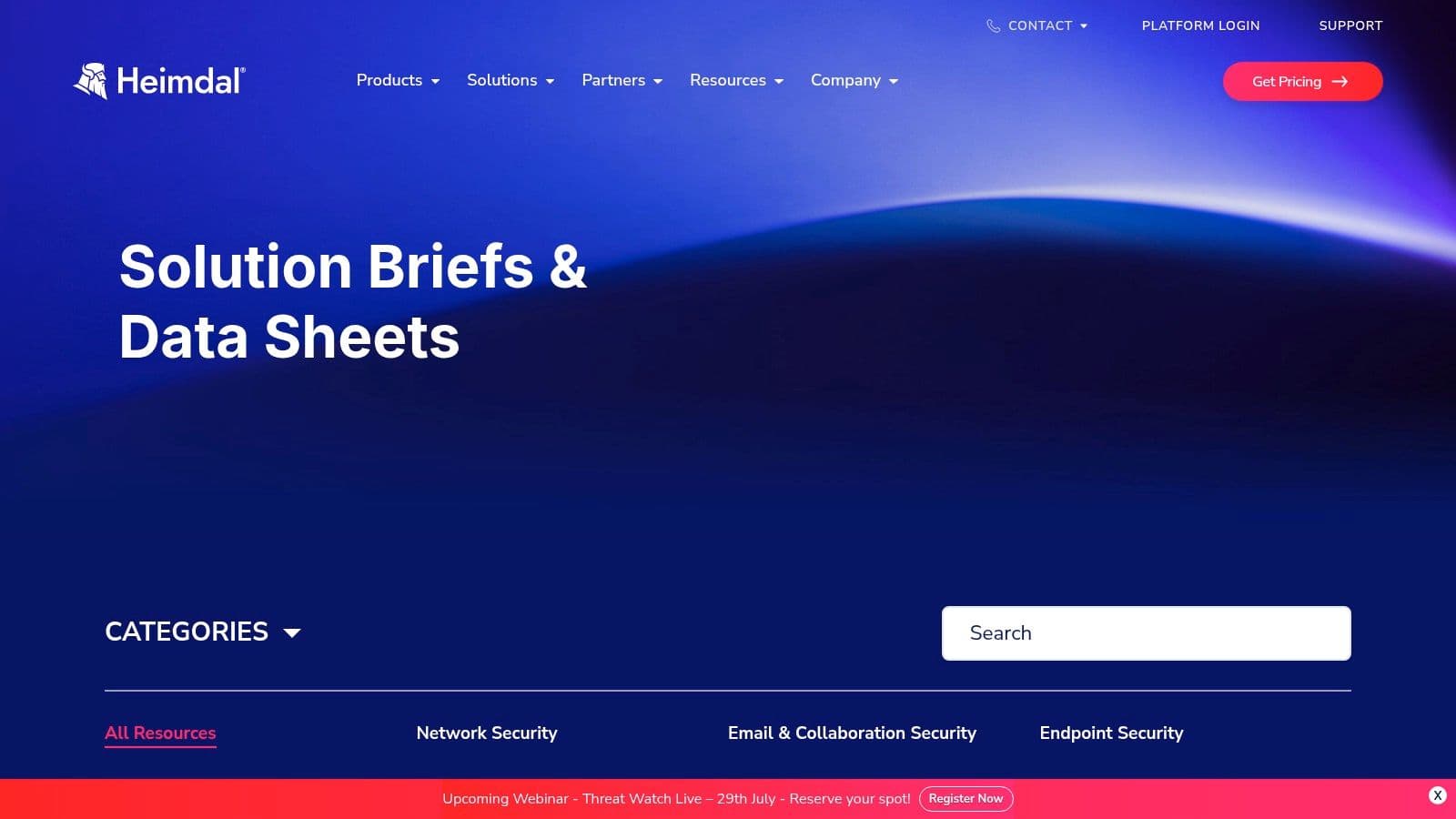
Core features:
- Just-in-time privilege escalation
- Automated approve/deny workflows
- Tamper-proof audit trails
Pricing and implementation:
- Quote-based pricing; contact sales for custom plans
- Integrates with Heimdal’s broader security tools
Best for: security teams that must delegate administrative rights safely.
Website: https://heimdalsecurity.com/en/products/privileged-access-management
10. StrongDM — Centralized infrastructure access management
StrongDM controls access to databases, servers, and clusters with role-based policies and real-time auditing, enabling safe delegation of infrastructure access.
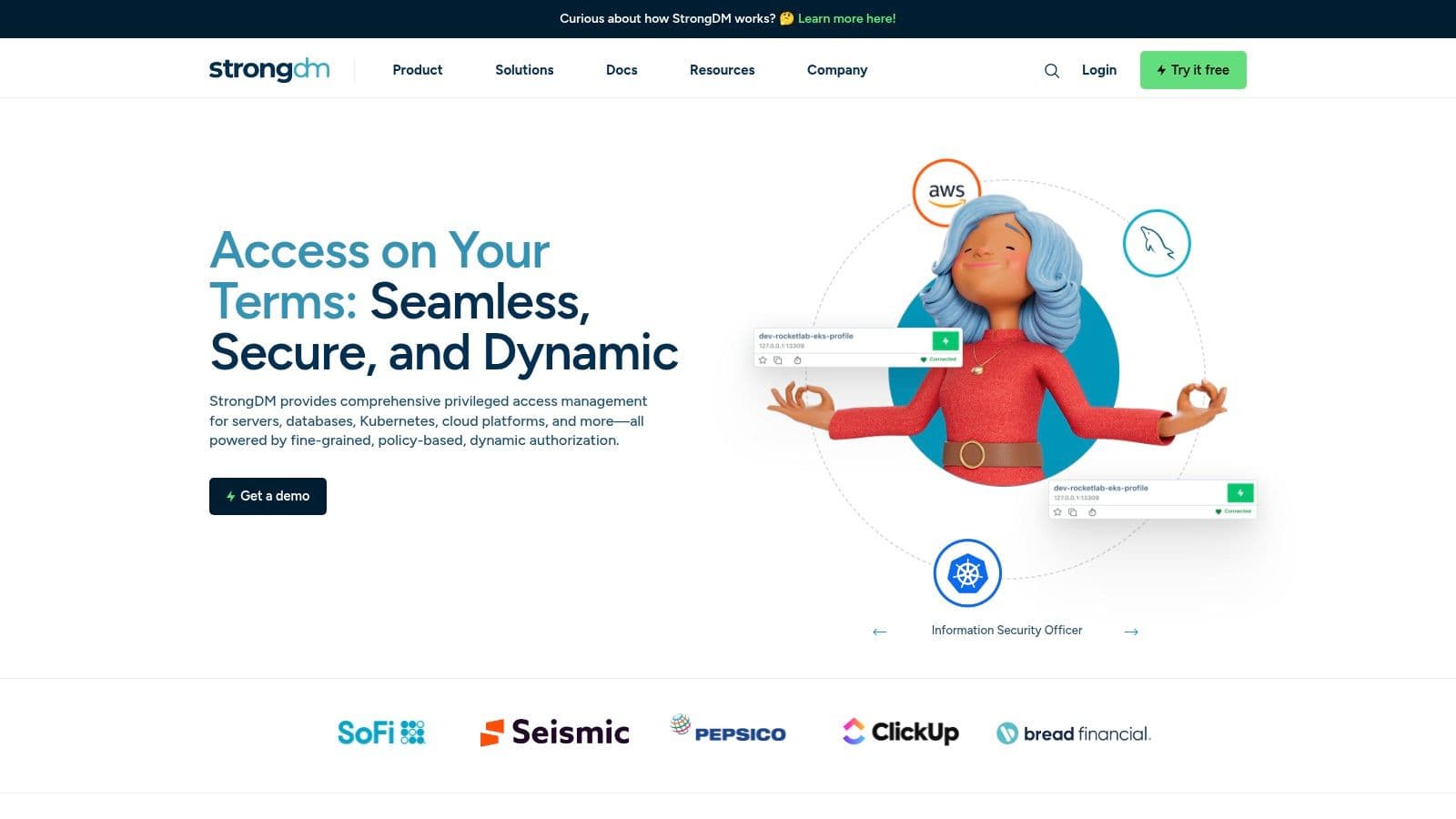
Core features:
- Centralized access dashboard for infra systems
- Role-based access controls and automated onboarding/offboarding
- Real-time logs of queries and commands
Pricing:
- Custom pricing; contact sales for a tailored quote
Best for: DevOps and security teams that need auditable, temporary access control.
Website: https://www.strongdm.com/
11. Precoro — Procurement and approval workflows
Precoro streamlines purchasing by routing requests through multi-level approvals and enforcing budget controls, making delegated buying compliant and visible.
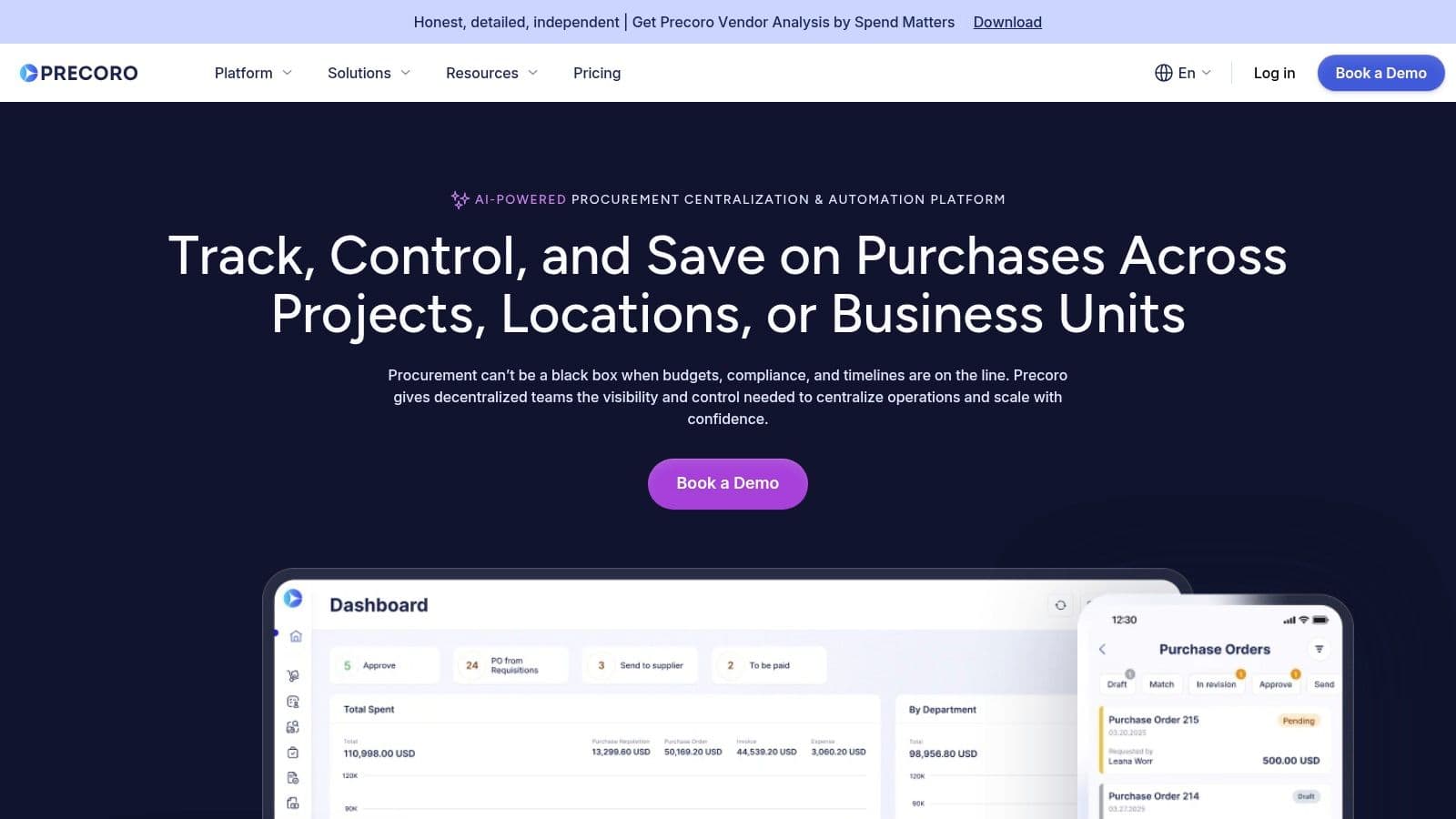
Core features:
- Custom approval workflows by department, amount, or role
- Purchase order creation and tracking
- Budget ownership and real-time spend visibility
Pricing:
- Small (5 users): from $35/user/month (billed annually)
- Medium and Enterprise: custom pricing
Best for: finance and operations teams that need to delegate purchasing authority while maintaining controls.
Website: https://precoro.com/
12. Procurify — Spend management and requisitions
Procurify centralizes purchase requests, approvals, and supplier data so teams can make necessary purchases within predefined limits and keep spend visible.
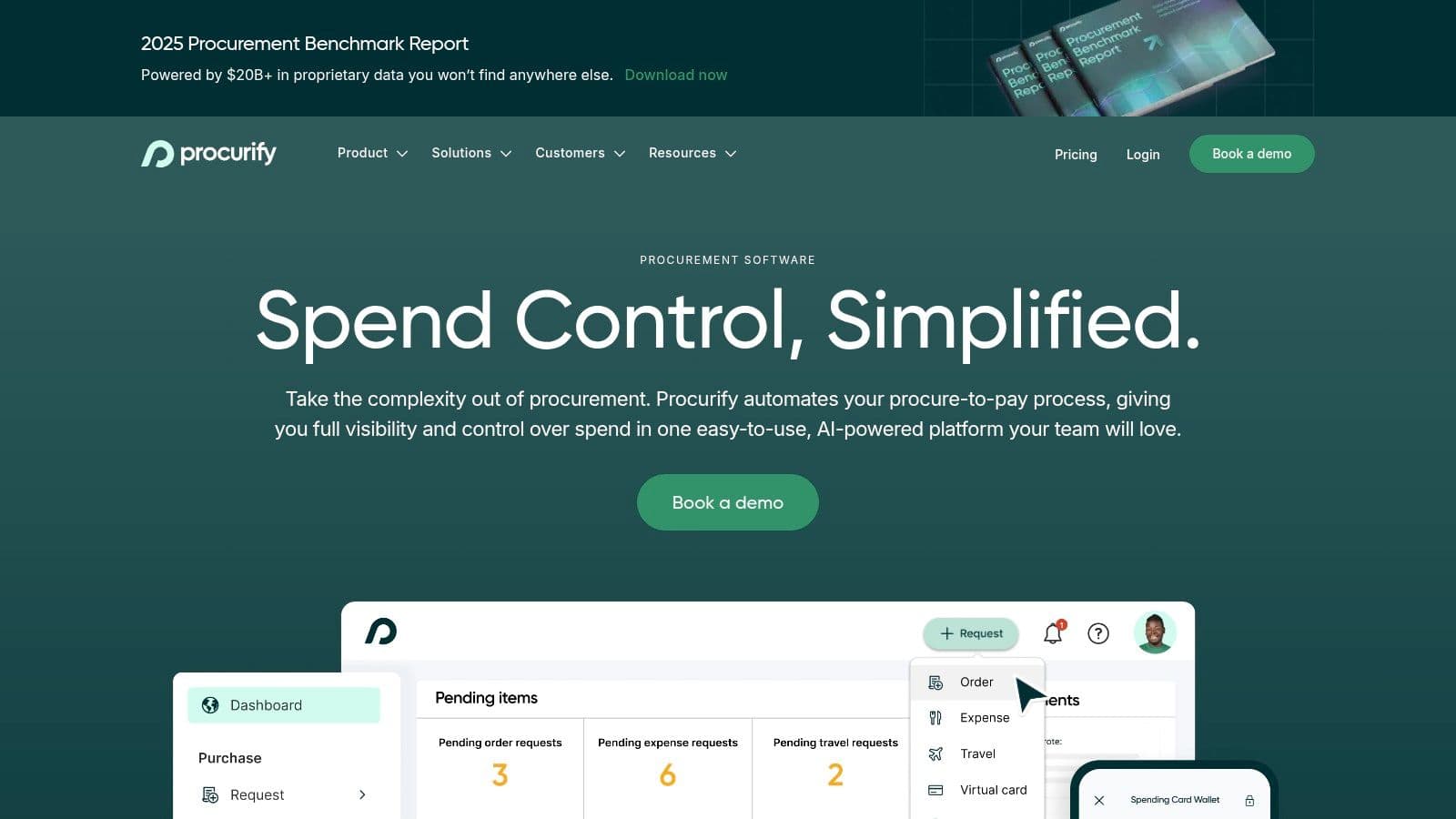
Core features:
- Customizable multi-step approval chains
- Requisition-to-order workflows
- Real-time budget dashboards and supplier management
Pricing:
- Custom pricing; contact Procurify for a quote
Best for: mid-sized to large organizations with formal procurement needs.
Website: https://www.procurify.com/
Feature comparison (high-level)
- Fluidwave — AI prioritization, pay-per-task assistants, free plan
- ClickUp — Deep customization, automation
- Asana — Visual timelines, workload management
- Trello — Intuitive Kanban, minimal learning curve
- Basecamp — Centralized communication, flat pricing
- Todoist — Fast cross-platform tasking
- Notion — Documentation-driven task management
- ManageEngine ADManager Plus — AD delegation and auditing
- Heimdal PAM — Just-in-time privilege controls
- StrongDM — Centralized infra access with auditing
- Precoro — Procurement approvals and budget tracking
- Procurify — Spend management and requisitions
How to choose the right tool
- Define your core problem: tracking, secure access, procurement, or project coordination.
- Audit your current workflow: keep what works and eliminate friction.
- Shortlist and trial two to three tools using real tasks.
- Consider implementation lift: training and adoption matter as much as features.
If your team values documentation with tasks, Notion or Asana may be best. For secure infrastructure access, consider StrongDM or Heimdal PAM. For procurement, Precoro and Procurify specialize in delegated approvals and budgets.
FAQs
Q: What’s the difference between general delegation tools and privileged-access delegation tools?
A: General delegation tools (Asana, ClickUp, Trello) manage tasks, deadlines, and collaboration. Privileged-access tools (Heimdal PAM, StrongDM) delegate permissions and access to systems securely, with time-limited elevation and audit logs for compliance3.
Q: How should I evaluate a tool during a trial?
A: Use real, low-risk tasks to test assignment, notifications, and reporting. Evaluate the recipient’s experience, integration with your stack, and the time it takes to onboard new users.
Q: Can one tool cover all delegation needs?
A: No single tool fits every need. Many teams combine a project tool (Asana, ClickUp) with specialized systems for procurement or IT access. Choose based on your primary pain point and integrate where needed.
Ready to master delegation? If you want a simple, AI-assisted approach with pay-per-task delegation options, explore Fluidwave at https://fluidwave.com or try building an internal workflow with our guide at /blog/delegation-best-practices.
Focus on What Matters.
Experience lightning-fast task management with AI-powered workflows. Our automation helps busy professionals save 4+ hours weekly.